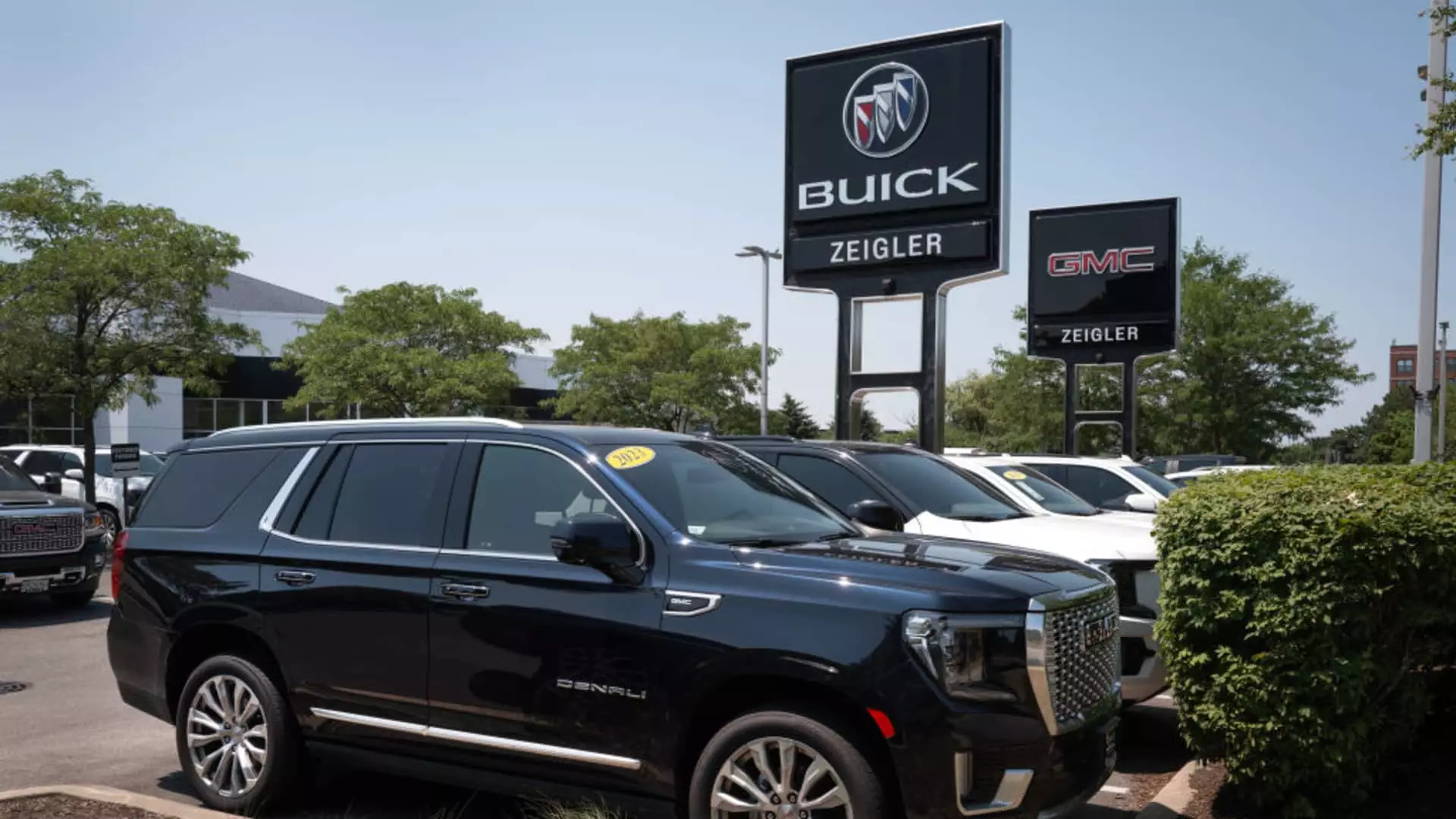General Motors recently reported its best quarterly sales in over three years, showcasing significant increases in full-size pickup trucks and all-electric vehicles. The Detroit automaker shared that sales for the second quarter reached 696,086 units, a 0.6% increase from the previous year, marking its highest quarterly sales since the fourth quarter of 2020. Notably, the sales of EVs saw a 40% surge compared to the same period last year, totaling 21,930 units. Despite this growth, EVs only accounted for 3.2% of General Motors’ total sales for the second quarter. Sales of full-size pickup trucks were particularly strong, with approximately 229,000 units sold during the quarter, reflecting a 6% increase from the previous year and the best quarterly performance since 2021.
While General Motors experienced positive momentum in its sales, the auto industry as a whole faced challenges during the second quarter. Industry forecasters such as Cox Automotive and Edmunds projected that second-quarter sales, including July 1, would remain relatively stable compared to the previous year due to slowing retail demand. However, an unexpected factor affecting sales was the cyberattack on dealer software provider CDK Global in June. The ransomware attack caused CDK to shut down its dealer management system, impacting nearly half of all dealerships in North America. This disruption affected sales during a crucial period for dealerships, with Jessica Caldwell from Edmunds noting that the attack threw a “monkey wrench” into operations.
Dealerships, including major publicly traded groups like Asbury Automotive Group, AutoNation Inc., Group 1 Automotive Inc., Lithia Motors Inc., and Sonic Automotive Inc., were forced to navigate delays and find alternative measures to sell vehicles following the CDK cyberattack. Although dealers worked to address customer demand amidst challenging circumstances, some deliveries had to be postponed until the third quarter. Despite the setback caused by the cyberattack, Caldwell mentioned that sales were not expected to be permanently lost or significantly deferred, but rather shifted into the upcoming quarter.
In addition to General Motors, Toyota and Hyundai also reported their second-quarter sales performance. Toyota’s U.S. sales totaled 621,549 vehicles during the period, showing a 9.2% increase from the previous year. The Hyundai brand sold 214,719 vehicles in the second quarter, marking a 2.2% growth compared to the same period in the prior year. However, Kia experienced a decline in its June sales, reporting a 6.5% decrease. Despite this, Kia’s overall sales for the first half of the year were down by about 2%, totaling 386,460 vehicles sold.
The automotive industry faced a mix of challenges and growth during the second quarter of the year. While General Motors saw positive sales momentum, the industry as a whole grappled with the impact of the CDK cyberattack and shifting market dynamics. As dealerships and manufacturers continue to adapt to these challenges, the third quarter presents an opportunity to recover and capitalize on the evolving automotive landscape.

